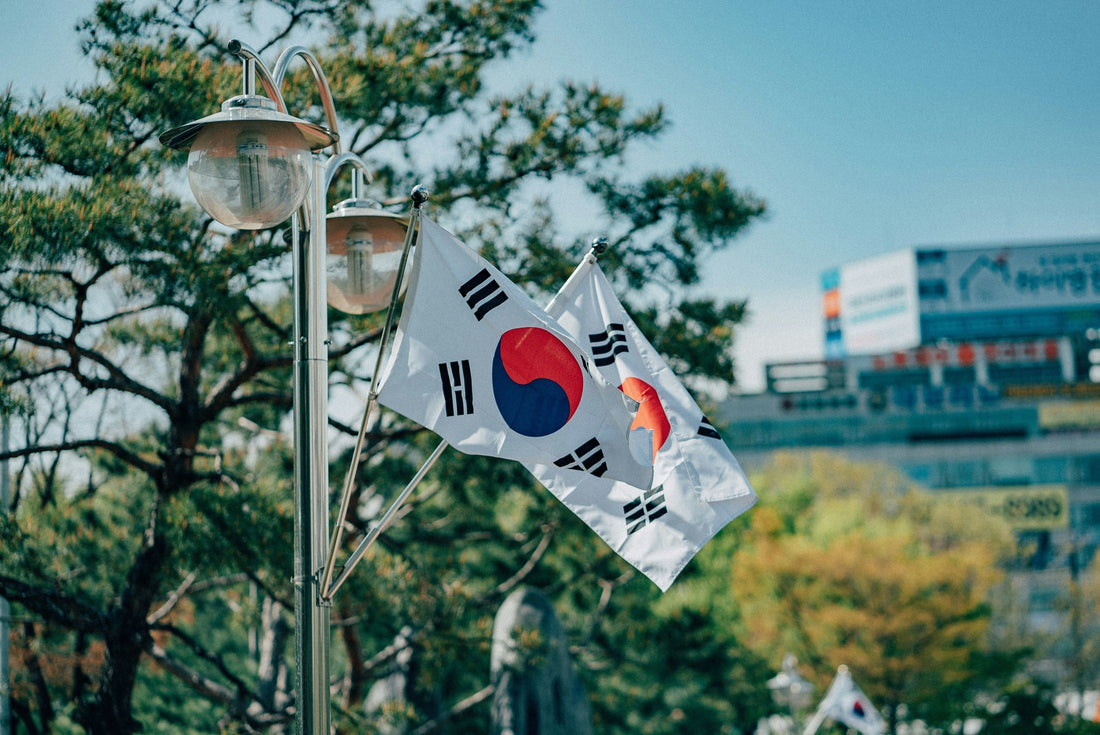
August 15th in Korea: Honoring 80 Years of Liberation Through Culture, Tradition, and Modern Connections
Giorgia LombardiShare
In 2025, South Korea celebrates the 80th anniversary of Gwangbokjeol (광복절), or Liberation Day, a holiday that marks the nation’s independence from Japanese colonial rule in 1945.
The name “Gwangbok” translates to “restoration of light,” and that poetic phrase captures the essence of the daylight and freedom returning after a long period of hardship. While the historical significance runs deep, the way Koreans observe this day blends remembrance with cultural pride, creating a celebration that bridges the past with the present.
Across the country, the Taegeukgi (Korean national flag) waves from homes, streets, and public buildings. In Seoul, major commemorations are often held at the Independence Hall of Korea, where visitors can witness speeches, cultural performances, and reenactments of pivotal moments in the nation’s history. Outside the capital, towns and villages mark the day with parades, music, and community events, ensuring that the spirit of Gwangbokjeol is felt across the country, from bustling cities to quiet coastal communities. Schools and community centers may also host educational programs for children, teaching them about the meaning of independence and encouraging pride in their heritage.
Cultural Traditions and Family Connections
Gwangbokjeol is not only a commemoration of political freedom but also a celebration of Korea’s cultural identity. Traditional music such as samulnori drumming, folk dances, and displays of gugak (classical Korean music) often accompany the day’s events. For many families, it’s also an opportunity to share personal stories; grandparents passing down memories of life after liberation, and younger generations listening with pride and curiosity.

Although there are no set “holiday dishes” for this occasion, meals often highlight seasonal Korean flavors. Popular choices include bibimbap, bulgogi, or platters of fresh jeon (savory pancakes), shared with relatives and friends. In some communities, sweet rice cakes (tteok) are given out as a symbol of gratitude and prosperity.
The Role of Language and the Arts

One of the most profound cultural shifts after liberation was the revival of Hangul (한글), the Korean alphabet, which had been suppressed under colonial rule. On Gwangbokjeol, there’s a renewed appreciation for the ability to freely read, write, and create in the Korean language. Museums and cultural centers frequently host exhibitions that focus on history, traditional crafts, and literature. Poetry readings, calligraphy workshops, and lectures provide an artistic dimension to the holiday, reminding people that liberation extends to expression, thought, and creativity.
Modern Ways to Celebrate - and Bring Korea Home
In today’s Korea, Gwangbokjeol is as much about cultural appreciation as it is about history. Many people visit hanok villages, palaces, or heritage sites to connect with their roots. Others choose to express their pride in a more personal way through fashion, food, or daily rituals that showcase Korean culture.
For those outside of Korea, or for locals looking to add something special to the day, Daebak offers curated ways to experience the country’s rich traditions right at home:
Themed Boxes - Perfect for discovering Korea’s unique seasonal and cultural celebrations, from traditional snacks to artisanal crafts.
Brand Boxes - A curated collection featuring popular Korean brands, letting you enjoy modern Korean products while honoring heritage.
Regional Boxes - A taste of Korea’s diverse landscapes and local specialties, offering a sensory journey through the country’s history and flavors.
These collections can turn Gwangbokjeol into more than just a date on the calendar; they transform it into a full cultural experience, whether you’re sharing snacks with friends, exploring new beauty products, or learning about regional specialties through taste and texture.
Carrying the Light Forward

Gwangbokjeol is more than a historical anniversary; it is a living tradition. It’s the sound of drums echoing through a summer street, the sight of the Taegeukgi against a clear sky, the taste of home-cooked Korean dishes, and the small moments that keep heritage alive. Whether in Seoul, a small countryside town, or thousands of miles away, the heart of the celebration remains the same: remembering the past while embracing the cultural richness of the present.
And in a modern world where traditions meet innovation, finding personal ways to celebrate through shared stories, cultural experiences, and curated Korean products ensures that the light restored in 1945 continues to shine for generations to come. This year marks 80 years since Korea regained its freedom, a milestone that invites reflection on the journey so far and the culture that continues to thrive.
